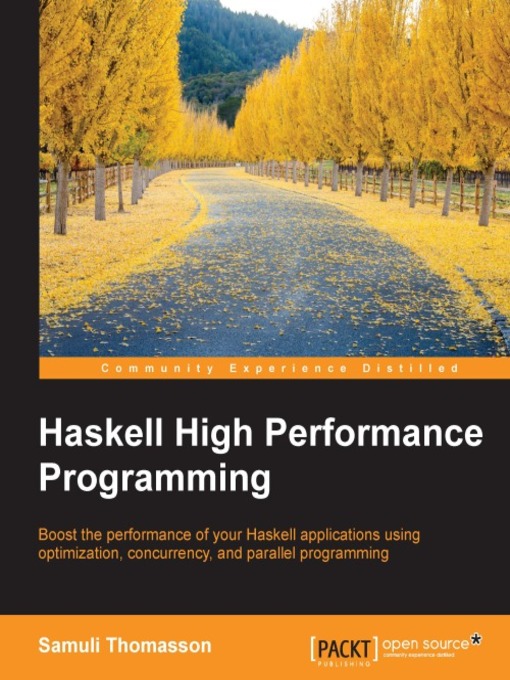Boost the performance of your Haskell applications using optimization, concurrency, and parallel programming
About This Book
Who This Book Is For
To get the most out of this book, you need to have a working knowledge of reading and writing basic Haskell. No knowledge of performance, optimization, or concurrency is required.
What You Will Learn
In Detail
Haskell, with its power to optimize the code and its high performance, is a natural candidate for high performance programming. It is especially well suited to stacking abstractions high with a relatively low performance cost. This book addresses the challenges of writing efficient code with lazy evaluation and techniques often used to optimize the performance of Haskell programs.
We open with an in-depth look at the evaluation of Haskell expressions and discuss optimization and benchmarking. You will learn to use parallelism and we'll explore the concept of streaming. We'll demonstrate the benefits of running multithreaded and concurrent applications. Next we'll guide you through various profiling tools that will help you identify performance issues in your program. We'll end our journey by looking at GPGPU, Cloud and Functional Reactive Programming in Haskell. At the very end there is a catalogue of robust library recommendations with code samples.
By the end of the book, you will be able to boost the performance of any app and prepare it to stand up to real-world punishment.
Style and approach
This easy-to-follow guide teaches new practices and techniques to optimize your code, and then moves towards more advanced ways to effectively write efficient Haskell code. Small and simple practical examples will help you test the concepts yourself, and you will be able to easily adapt them for any application.

